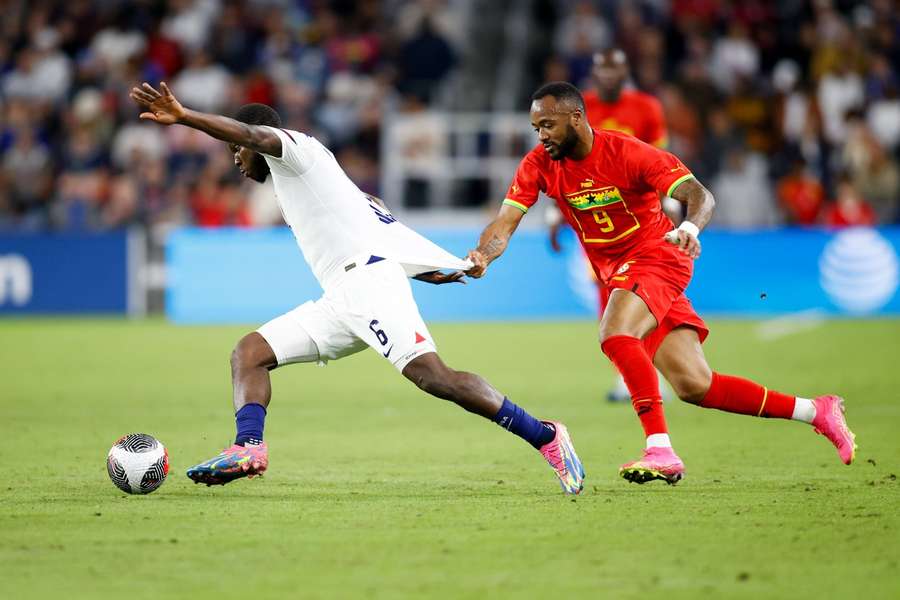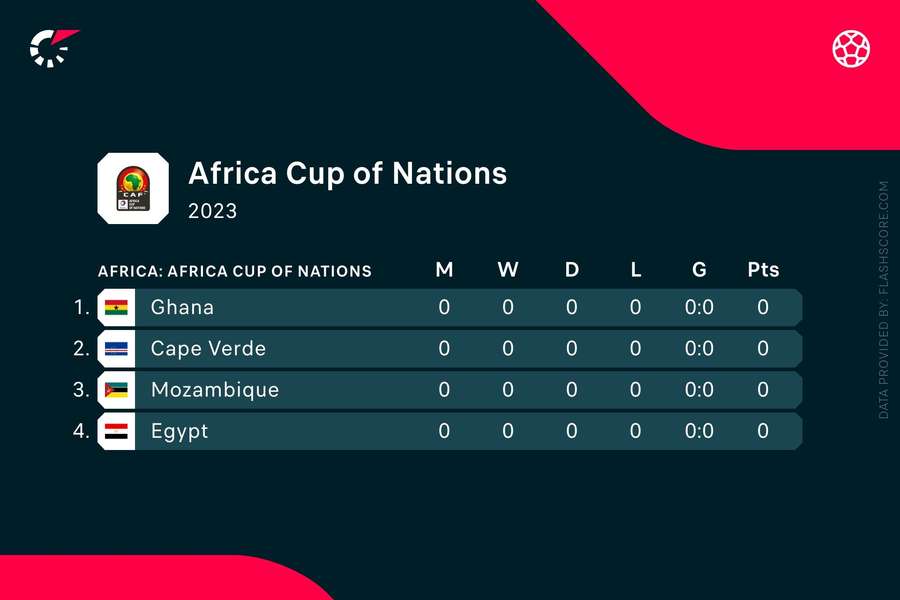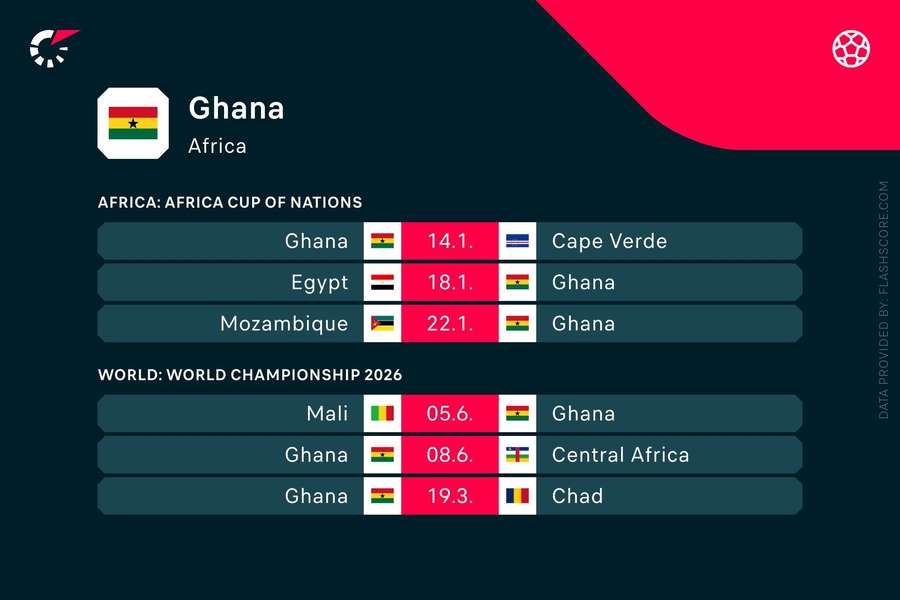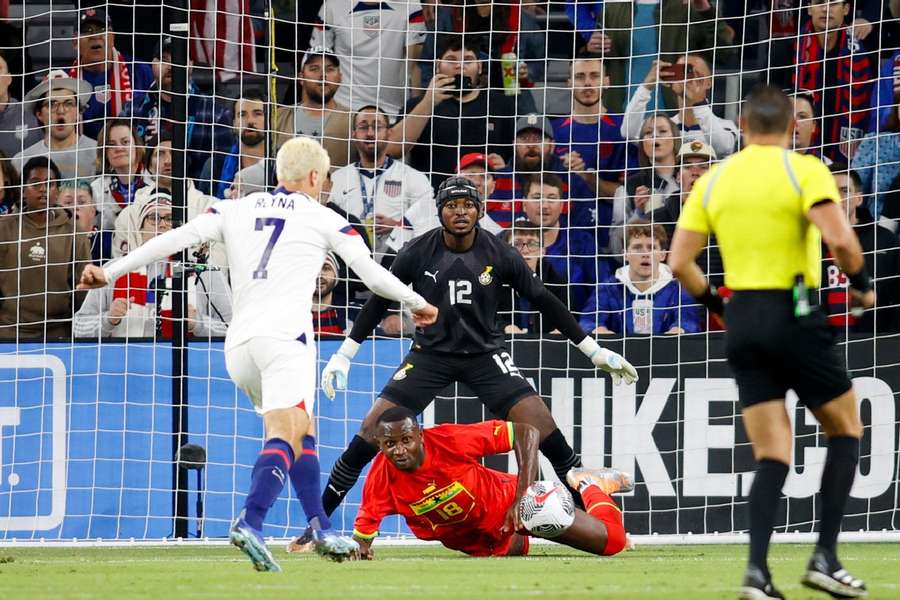Time is running out for Ghana and Chris Hughton with AFCON looming

Making their AFCON debut, Comoros ranked 132nd in the world at the time needed to win their final group game to stand a chance of qualifying from their group. Still awaiting their first-ever goal at a major tournament, it was fair to say the odds were stacked against them facing the four-time AFCON winners who also needed a win.
The Coelacanths, Africa’s fourth smallest country, played out of their skins, scoring with all three attempts on target albeit Ghana played more than 70 minutes with a man down.
Interestingly, both teams were paired once again in the same group for the 2026 World Cup qualifiers. With a chance to make amends, the Black Stars once again fell victim to Comoros and succumbed to a damning 1-0 defeat that leaves Chris Hughton’s men outside the qualification slots.
The next time the qualifiers resume for Ghana will be in June 2024 with a tricky trip to Mali and failure to win could see
the team fall further off the pace.
Before that, Ghana have to travel to Ivory Coast for the AFCON bearing in mind that the last edition in Cameroon was their worst-ever performance at a major tournament after picking up a solitary point in the group stages.

With the AFCON just over a month away, the warning signs are once again evident unless drastic changes are enforced.
Fitness needs to be a priority
This is probably out of Hughton’s control but it is alarming the number of injuries he’s had to deal with since taking charge.
Hughton (64) in his nine games in charge is still yet to repeat the same starting XIs. The main contributing factor has been fitness issues or injuries. Right from his first game in charge against Angola, Mohammed Salisu failed to
make the squad due to a fitness issue and couldn’t even complete the training session the night before.
In the reverse fixture, Denis Odoi, Alexander Djiku, and Thomas Partey, who all started the previous game, failed to make the squad due to injury.
In the next game away at Madagascar, Patrick Kpozo had to step in because the usual culprits at left-back Gideon Mensah and Baba Rahman were both injured. In the final AFCON qualifier against Central African Republic, the Arsenal
midfielder was absent once again due to injury.
Mensah and Rahman once again missed the friendly with Liberia in Accra as Medeama’s Fatatwu Hamidu made his debut.
In the friendlies against Mexico and USA, Celta Vigo defender Joseph Aidoo ruptured his Achilles tendon and Partey wasn’t fit enough to play 90 minutes in both games.
The most recent games against Madagascar and Comoros saw Daniel Amartey leave camp after an injury and Mohammed Kudus’ minutes managed due to a back issue.
The majority of these injuries were sustained during the international break. Beyond that key players such as Tariq Lamptey, Salisu, Daniel-Kofi Kyereh, Partey, and to some extent, Djiku have been struggling with injuries and have been unavailable for Hughton.

Come January, Ghana will need to put its best foot forward, and to do that these aforementioned players need to be fit. It is one area; the technical team will need to pay attention to so the country can have close to a full complement of its players to compete.
Otherwise, there should have been a more deliberate attempt to widen the talent pool to choose from knowing how fragile some key players are.
Time to say goodbye to slow starts
Throughout Hughton’s tenure as Ghana coach, there has been a sharp contrast
between how the team plays in the first half compared to the second half. For starters, only one out of the eight goals scored so far has come in the first half – and that goal was just a couple of minutes from the half-time break.
Usually, the approach in the first half is flat, uninspiring, and turgid which is dissimilar to the cliche and conventional urge for the teams to always start well. If you’ve been privileged enough to hear a team talk by coaches in the dressing room before games, you’ll notice the stress of the need to start the game on a strong note.
The benefits of a good start are endless because you destabilize and overwhelm your opponents, and sometimes you can get a goal in the process. In most games, it’s been evident that the team that seizes the, and sometimes you can get a goal in the process.

In most games, it’s been evident that the team that seize the occasion early often dictate play and gains momentum as the match progresses. Hence, a team with four AFCON titles should aim to approach each game with fire in their bellies. A closer look at away games reveals that Ghana have yet to play a shot on target on the road in the first half of competitive matches under Hughton.
It can’t be a coincidence especially when the team largely performs better in the second half of games. If anything, the game against Comoros should serve as a reminder that the team won’t have the luxury of recovering from slow starts like they did against Madagascar at the high level and will likely be punished.
The game is much more intense in major tournaments like the AFCON and with Ghana set to face Egypt in the group stages, they must curb the habit of starting slow before January.
A goalkeeping dilemma that shouldn’t exist
On a more serious note, who is Ghana’s number-one goalkeeper? I don’t think the technical team has a stable answer which is problematic. The goalkeeping department is the most fragile position in the sport. A player in any other position can afford to make a mistake and someone behind them could recover.
There needs to be a consensus on Ghana’s safest pair of hands especially heading into a major tournament. It only looks dicey because the Black Stars have had four goalkeepers in less than two years, and all are still active.
Jojo Wollacott was the undisputed number one for the Black Stars ahead of the World Cup but a finger injury saw Lawrence Ati-Zigi claim his spot. Since then Manaf Nurudeen has been in goal for a couple of friendlies and recently Richard Ofori has resurfaced and featured in the last two qualifiers.
Competition in any team often does more good than harm but in the goalkeeping department, you want to see some consistency.
Goalkeepers and defenders must play games together to build confidence, trust, and rapport over time. If defence win you championships, then Ghana are quite far from an AFCON due to how unstable their defence line has been.
Hughton and the rest of the technical team need to be bold and make it clear who will be Ghana’s go-to goalkeeper ahead of the continental showpiece next year. Take a look at the more successful national teams in recent history; Argentina, Senegal, Morocco, France, Italy, etc, and there’s no doubt about who is their first-choice goalkeeper.
During Ghana’s best spells in the 21st century, the goalkeeping choices were more consistent whether it was Richard Kingson, Fatau Dauda, or Razak Braimah. It’s time for the country to return to that, especially to stand any chance of making a mark in Ivory Coast.
